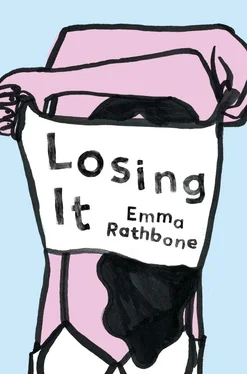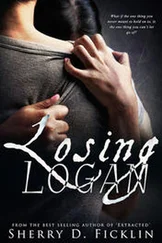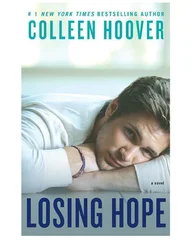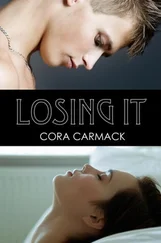I stepped back from the waterline and pulled my dress over my head, and left it in a pile along with my shoes in the sand. I wondered how deep the lake got. Where it dropped away under you, and whether it was man-made, or what kind of creatures were breathing rapidly in the prehistoric depths at the very bottom.
The hotel room I stayed in after the trials in Tallahassee blinked into my mind, as it often did at the most random times. There were wet towels on the floor. The smell of coconut hand lotion came from the bathroom. My roommate, Cissy, was outside, on the balcony, her feet up on a plastic chair, telling her parents all about it on the phone. She’d made the team. I was sitting against two overstuffed pillows, my face chlorine-tight, not feeling. I was floating above it all — there was a show on the television, a stern-looking female lawyer said, “The winter palace is the only place”—and trying to determine where it had been, the silent hinge where I’d ceased being an Olympic-class swimmer.
The truth is I hadn’t even come close. You had to be in the top two. I’d been eighth. It was incalculable, what that meant — the vast difference between your assessment of a situation and what’s actually possible.
But maybe I hadn’t tried as hard as I could have. Because now, pushing off the sand — the water was lukewarm, even in the night air — I felt I had tectonic strength in my shoulders. I started swimming toward the filtration tower I thought I could see in the distance, just like Jack said. The sound of the cracking plates replayed in my mind. What I wanted was to reach that place where you’ve obliterated yourself with exercise, where a seam comes apart and it all goes blank, where I wasn’t imagining Viv’s face as she checked her phone, called me, tried to buy time. There was no fathoming the utter mess I’d made of the summer, the nuanced and majestic ways in which I’d ruined everything. I wanted to get away from all that thinking as fast as I could. To that place where you’re only pushing because of some primordial, flickering electricity — whatever it is that makes humans go.
I swam probably faster than I’d ever swum in my life. Or maybe it just felt that way in the darkness and splashing, locking stroke onto stroke and getting farther away from the shore. I swam down, and the water closed above. I clawed toward the bottom, going deeper and deeper. I saw myself from the outside, making a diagonal line toward the center of the earth, going through all the sedimentary layers, putting leagues between me and civilization. Then I pictured my lungs, two straining, bright wings in the darkness. Then inside out, far away, inner-ear agony. I swam back up. At the surface, I looked around, gasping for breath. I was in the middle of the lake. There was no tower. It was completely quiet. I could have been suspended in space.
I pulled up to the shore, and coughed, and lay there. The water lapped against my feet. I closed my eyes, and eventually went to sleep.
When I opened my eyes it was still dark, and I couldn’t tell if it had been five minutes or five hours. I was freezing. The sand, which had been so inviting to sleep on before, was now cold and itchy. I sat up and pulled my knees to my chest, letting my eyes adjust. There was trash I hadn’t noticed before, a plastic bag and a crumpled soda can, lolling at the shoreline. A bird gave a mournful call. Back in the car, I saw that it was five in the morning. I’d slept there for seven hours.
As I drove home, and approached the fields surrounding Viv’s house, I realized I hadn’t been up this early since my swimming days. Sometimes it had been torture to wake up at that hour, all wrong, like combing hair against the grain, but I now realized that I missed it — the pink sky, the secret, cathedral feel of the morning.
I parked and walked up the stairs to the house. I thought I’d just go up to my room, avoid Viv since she’d be asleep, shower, and fall into bed, but then I heard a sound, a chair scraping. I walked down the hallway, and there she was, awake, in the dim kitchen, sitting at the table. She was wearing a bathrobe. Her hands were clutched around a cup of tea. Her hair was bedraggled around her shoulders, her eyes were red, and her lips were pushed to the side in an awful way.
“I’m glad you’re okay,” she said, bringing the tea to her lips, without looking at me. “Although I wish you’d been in touch with me earlier in the night.”
“Viv,” I said.
“There was a good turnout. Everybody came, like they said they would. The catering was beautiful — did I tell you I decided to have it catered at the last minute?”
“No,” I said.
“It was expensive, but it was worth it to me. I said, ‘She’ll be here,’ when Pete kept looking at his watch.” She glanced at me. “Incidentally, we have three platters of deviled eggs, olive canapés, and chicken skewers with peanut sauce in the fridge in the basement.”
I couldn’t move.
“When he showed up, I was so embarrassed, so anxious. I think he could tell. He was such a nice man. He stayed much longer than he had to, walked around and looked at some of the other art. Of course, I was still hoping. I was still thinking, here he was. I was still thinking, things could be different now.” She looked into the distance; her chin quivered. “If Julia would just arrive with the plates. In the end, he ended up talking to one of the other women. She does stained glass. And he liked her stained glass. He liked it very much…” She trailed off.
Outside, the sky was starting to turn purple. The room had a surreal, suspended quality, with the light beginning to shift. I felt sick. When the silence became unbearable, I said, “I had to run an errand, at the last minute, and I was just coming back, and I got hit from behind, at a light.” My voice sounded high and false. “And my phone ran out of battery. I couldn’t call anyone.”
“The plates?” she said quietly.
I shook my head.
Viv didn’t react. Finally, she said, “Your mother called. You’ll want to call her back. I think she got a little worried when I got in touch with her last night trying to figure out where you were.”
With that, she got up from the table and walked to the sink with a definitive air, as if ending the conversation. I watched as she rinsed her mug, put it in the dishwasher, and then started fiddling with the dial, which had always been a little wonky. She cursed at it under her breath. Not knowing what else to do, I turned and began walking away, and then it came — her voice, with a wild, guttural quality. “Why?” she bellowed.
I whipped around, half expecting her to be hurt, missing a finger. But she was fixed on me, rage hammering.
“Why?” I said.
“Why is this here?”
I couldn’t see — she was looking at the side of the fridge. She reached for something and showed me, a National Geographic I’d put in a magazine holder attached there.
“I—”
“Why don’t you put them back?” she said. Her voice climbed in a strangled way. “Why don’t you put them back where they belong? You leave them on the coffee table in the lounge. You take them out of their place in the sunroom and leave them, and it’s the same with other things, books; you want to read something of mine— fine —but why don’t you put them away? You must have noticed — who do you think puts them away? Do you think they walk themselves back to the right place? Every single time I pick up after you, and then you do it again. I find them on top of the fridge, on the stairs, you left a stack on the piano, not five steps away from the proper place, and on the porch swing in the rain. And how you dig your toenails into the coffee table in the sunroom? And chip at it?” She was yelling, her face in disarray. Her bathrobe had fallen open and gaped inelegantly at the chest. “I’ve seen you do it and now it’s ruined .” At this, she slammed the magazine back into the holder, which broke off the fridge and clattered to the floor.
Читать дальше
Конец ознакомительного отрывка
Купить книгу












